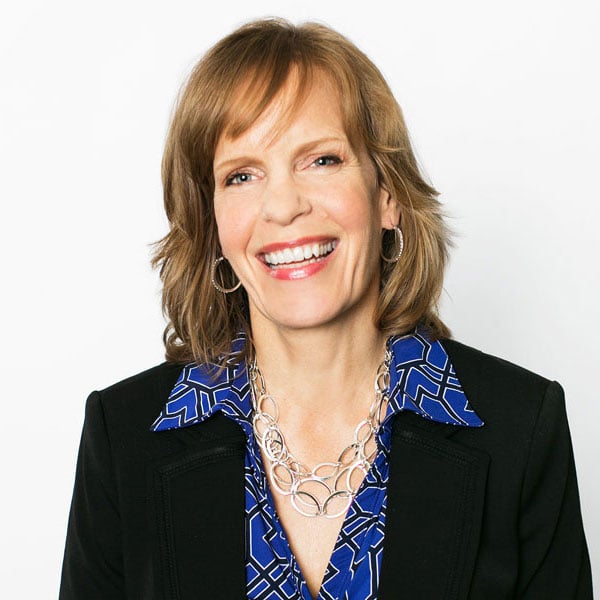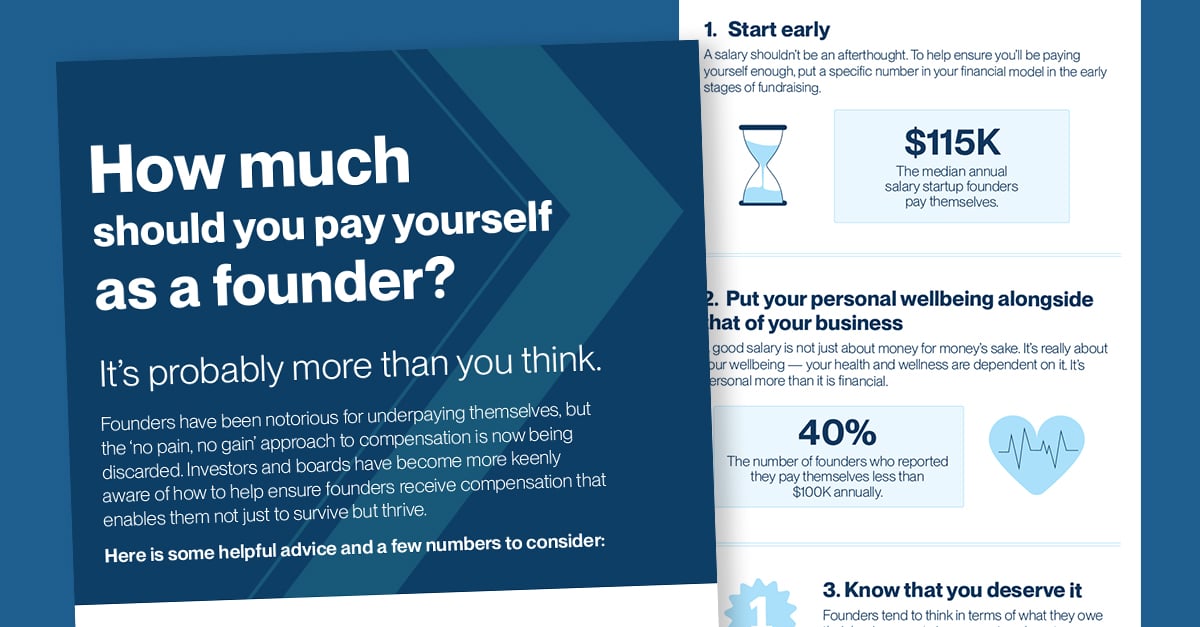Discover the critical factors impacting equity holdings, learn to build an equity foundation and understand the significance of the QSBS exclusion.
Podcast transcript
Ann: Welcome to the first episode of "Business Meets Personal Wealth." Hi, I'm Ann Lucchesi with SVB Private, and I've been advising founders for over 20 years on how to think about their wealth journey. Every week, I'm digging into some of the unique challenges that impact our clients across the innovation sector and discussing some of the ways our advisors help plan for the unknown and build individual wealth strategies.
Today, I'm lucky enough to be joined by Michael Conway, an advisor with SVB Private Bank. Michael, thanks for joining me. Would be great if you could just take a moment to introduce yourself.
Michael: Yeah, for sure. Thank you, Ann. It's great to be here today. I'm a managing director and private wealth advisor with SVB Private. I've spent nearly the last two decades working with founders and investors around a number of complex wealth planning and investment management needs.
All of our clients have complex balance sheets and are looking for help with their unique situations. When it comes to clients we work with, a common theme I've seen with most everyone is that they push their personal needs aside while they continue to build and focus on building a business. Given that, one of the questions I frequently hear is, what are the things I need to be thinking of or know about my equity holdings as I grow a business?
What's your perspective on that, Ann?
Ann: Yeah. It's certainly the number one topic, right? The founders we work with are time constrained. They don't have the time and resources to focus on the personal financial wealth. Many of them kind of look at it as just, you know, fake paper for the moment while they're focusing on the business, but it's really important that they understand kind of the downstream impact. As you think about helping them along their journey, what's the most important thing that you think all founders really need to understand?
Michael: From my perspective, I think, you know, QSBS is one of the most important and impactful topics for our clients to understand. Quick summary, it's a federal tax exclusion for the sale of a qualified small business stock.
And if I think about founders at a series B or series C stage, it's a common time we see a secondary liquidity event, but it's also the inflection point where we see personal balance sheets really start to grow in a meaningful way, which can be a great opportunity and time for longer-term planning.
Ann: Yeah, certainly. I always tell founders it's the number one way to save taxes downstream, and we happen to kinda be touching people where, for the most part, it impacts their balance sheets and they should understand it.
This conversation around saving taxes and such, of course, naturally leads us to the conversation about how they think about liquidity as their company grows. It's a really different discussion today where companies are remaining private for maybe 14 years plus, than it was when companies were going public at the 7-year mark, and they had to wait to take money off the table.
Today, I think many of the founders I'm talking with, by the time they get to a B round, if they're successfully growing their company, it's time to start thinking about maybe taking a little money off the table.
It's a long road. I feel like they should be thinking about it along the way. I think it helps them stay focused on growing that business. But what advice do you give to them as they're kind of planning this journey?
Michael: Yeah, you're right. I mean, let's face it, companies are staying private longer. And especially in times of uncertainty or volatility like we're seeing today, people are really thinking about how they access liquidity. I am a big believer that clients and people should take money off the table when they can. It helps release that pressure valve when you pay yourself a below-market salary to build something with exponential growth, and it really just makes sure life continues onward. With any type of secondary or especially any equity fundraising round, comes dilution.
And so one of the other things we talk about in addition to secondary liquidity is, how do you think about...continue to make sure you're not diluted with all of these types of events? And so a lot of what we talk about is, how do you and when do you go and ask for additional equity grants?
What do you advise the clients you work with, Ann, on this area?
Ann: Well, as you know, Michael, every single founder's journey is a little bit unique to themselves, and so this is not a black-and-white answer, and it's fairly complex. But I think to your point earlier where they're taking a below-market salary, it is important to kind of fundamentally understand that if they were to replace themselves with an outside CFO, they would be adding an equity grant for that person. So, it's certainly reasonable to take one.
The important thing is to sit down and really understand when you go to take an equity grant, what's most meaningful for you.
If you have the liquidity and the idea is, hey, I'd like to kind of exercise right away and start that long-term capital gain clock ticking, then, in fact, you would probably wanna have an option that has an early exercisability, and it would be fine to have that be all a non-qualified option.
If, on the other hand, you don't have the liquidity today and it's really meaningful for you to kind of be able to plan in the long run, then you're gonna wanna have an incentive stock option to the maximum amount that you can have so that every year you can look at planning around that. Keeping flexibility and making sure it fits for you is the most important thing.
Michael, I know that you like to have meaningful conversations to advise clients based on their individual needs. When do you think a founder should begin to talk with an advisor?
Michael: In reality, it's never too early from my perspective. I consider myself to be a full balance sheet advisor, advising clients along their journey. I spend a lot of time with individuals and teams as they go out and raise new equity rounds. And it becomes especially important when you're hitting that series B or series C stage.
Anytime there is what I like to call money in motion within a business, it always will have a direct impact to a founder's personal balance sheet, or the broader executive team, or their employee base for that matter.
But working with an advisor who understands their journey as a founder and all of the issues and the nuances that come with it can have a long-lasting impact. So, I never think it's too early to engage. And I think even more importantly, it's extremely important to continue to have an open conversation as events happen within a business because at the end of the day, it always trickles down to an individual and their family personally. And working with somebody who understands that and can be a thoughtful advisor along the way has a long-lasting impact.
Ann: I couldn't agree with you more. Thank you, Michael, for joining us today. So glad you were able to make it.
Every week, I'll be covering topics for our clients in the innovation economy, things that they face every day, and are looking for solutions to. Thanks for joining.
















